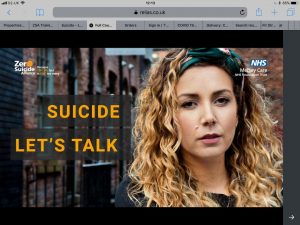
The Office for National Statistics (ONS) have published new data on the impact of COVID-19 on caring.
Their findings show:
Before the pandemic about 11% of adults provided care for an elderly, disabled or ill person living outside their household. This compares to the new ONS figures which found that almost half (48%) of UK adults now report providing help or support to someone outside of their household – surveyed during April 2020.
Of the adults who reported providing help , 32% were helping someone who they did not help before the pandemic and 33% reported giving more help to people they helped previously.
In 2017 to 2018, just over 1 in 5 (21%) adults that provided some regular service or help for a sick, disabled or elderly person not living with them reported symptoms of poor mental health. During April this year, among those that provided help or support to others outside their home, this increased to nearly 1 in 3 (31%). For people not providing help or support, the proportion reporting poor mental health also increased from 20% to 29%.
Shopping was the most common activity that people undertook as part of their caring responsibilities (85%). Other support including cooking meals, helping with internet access and helping with tasks like paying bills.
Those aged 45 to 54 were the most likely group to provide support – 60% of this age group reported doing this. Women were more likely than men to provide support, as were those with dependent children.
Between 3 April and 10 May 2020, 79% of adults said they were very or somewhat worried about the effect that coronavirus (COVID-19) was having on their life and 11% of these said their caring responsibilities had been affected by the pandemic.
Almost half (47%) who said their caring responsibilities had been affected said they were unable to care for someone they usually supported, for example, by being unable to spend as much time as they would like with them or being unable to travel to them. Nearly 15% also said they had to organise remote support for someone vulnerable and 9% said that paid support had reduced.





